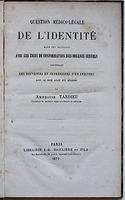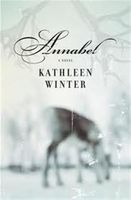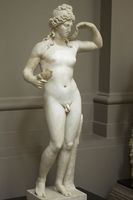Hermaphroditism and Literature
Kathleen Winter’s sumptuous, Giller-nominated Annabel, from House of Anansi, tackles the theme of hermaphroditism with gusto. Based on a true story, her book focuses on a child born in late-1960s Labrador, where the pressures of a male-oriented society conspired to make an inter-sex child male rather than female.
“What determines sexual identity?” is a question that still lingers. Other writers have grappled with the question in different ways. Orlando: A Biography, Virginia Woolf’s celebrated exploration of sexual identity, inspired by her relationship with Vita Sackville-West, is perhaps the best-known literary work on the subject. Orlando initially begins life as a man, but later “metamorphoses” into a woman while maintaining the same interior persona.
Other works have made a splash in recent years, particularly Michel Foucault’s discovery and translation of the memoirs of a 19th-century French hermaphrodite, Herculine Barbin (1838-1868.) Initially raised as a girl, Barbin’s condition was discovered by a doctor when she/he was in her early 20’s. Legal orders forced Barbin to “transform” into a male against her will. She/he committed suicide eight years later.
Jeffrey Eugenides won the 2002 Pulitzer Prize for his novel, Middlesex, written after he read the Barbin memoirs, which he felt were unsatisfactory in their discussions of the physical and emotional life of a hermaphrodite. Middlesex deals with a contemporary American man bearing female traits who must resolve the issue of gender determinism for himself.
Winter’s hermaphrodite child, baptised "Wayne," is subjected to a great deal of prejudice and insensitivity. While the mother wants her child raised as a girl, the father wants his child to be a boy. Wayne is subjected to a medical examination with a “phalometer,” an instrument designed to measure the length of the child’s penis to “determine” whether he or she is more female or male.
Your CanLit News
Subscribe to Open Book’s newsletter to get local book events, literary content, writing tips, and more in your inbox
Renaissance writers, both literary and scientific, were taken with the subject, as were the ancient Greeks. Hermaphroditus, in fact, was a minor Greek deity. Born the child of Aphrodite and Hermes, Hermaphroditus was revered as a symbol of bisexuality.
According to research undertaken by Foucault, in the Middle Ages, hermaphrodites were allowed to choose whether they wanted to live as one sex or another. This right of self-determination was abandoned once science “determined” that a person could have only one real gender. In fact, it’s only in the last few centuries that a lack of clear gender identity has been viewed as a problem.
Apparently, in the distant future, we will have resolved these issues, however. At least according to Torchwood’s Captain Jack Harkness, a refugee from the 51st century, who describes himself as “omnisexual.” (In fact, Jack will flirt with anything.) Encountering the moral prescriptions of his 21st-century colleagues over issues of sexuality and sexual identity, he exclaims, “Oh, you people and your quaint little categories."
The views expressed in the Writer-in-Residence blogs are those held by the authors and do not necessarily reflect the views of Open Book: Toronto.
Jeffrey Round is an award-winning writer and director. His most recent novel is The Honey Locust.






